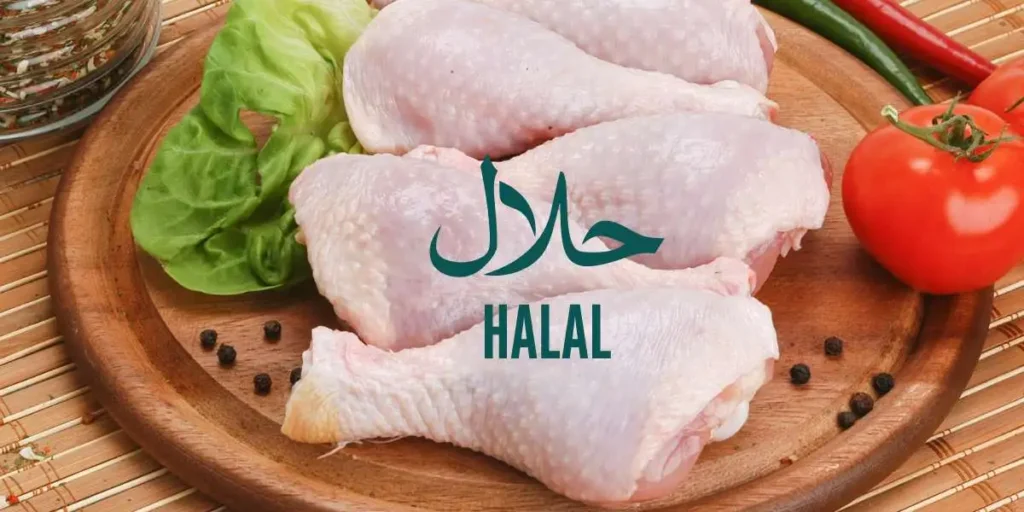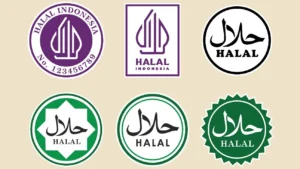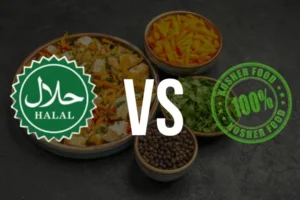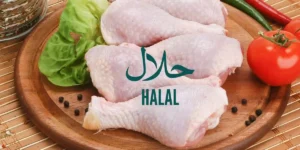It is not just a food choice for the Muslim community: halal chicken has been gaining prominence at the table of a diverse audience, attracted by its ethical values and quality. But do you know what the true benefits of halal chicken are and how it differs from other meats available on the market? Discovering the reasons for this preference is not just a matter of flavor, but of health and conscience. Follow us in this article and understand more about the roots of this ancient tradition and learn how to identify halal chicken in a safe and guaranteed way.
Main information
- Understand what defines chicken as halal and the practices behind its slaughter.
- Learn about the ethical and health criteria that make halal chicken a superior food option.
- Discover recommendations for authentically identifying products certified as halal.
- Learn about the inspection procedures that ensure the quality of halal chicken on the market.
- Explore the cultural impact and growth in demand for halal chicken around the world.
Introduction to halal slaughter
The demand for halal certified chicken and halal meat has grown substantially across the world. The preference for these products is directly related to halal standards , which ensure not only compliance with religious guidelines, but also a commitment to sustainable and humane slaughter practices. Understanding what halal chicken is and its principles is essential for consumers looking for meat options that harmonize ethical and quality practices.
Furthermore, understanding the meaning behind halal slaughter is critical to understanding its importance to Muslims. The act of consuming halal food is rooted in a religious belief, where obedience to Allah and the pursuit of purity are fundamental.
Definition of Halal Chicken
In this article, we will delve deeper into these principles and meanings and explore more about halal slaughter. Whether you’re curious about this practice as a whole or want to better understand the beliefs and values associated with it, you’ve come to the right place. Let’s embark on this journey together and uncover the essence of halal slaughter.
Halal food principles
In addition to specific slaughter techniques, halal food encompasses a series of principles that cover the entire life cycle of the animal, from breeding to the processing of halal meat . Hygiene, animal health, and the absence of prohibited substances such as alcohol and certain additives are fundamental aspects of halal standards . Below, we explore the main guidelines that support this ancient tradition.
| Principle | Description | Associated Benefit |
|---|---|---|
| Animal welfare | Dignified and humane treatment throughout life and slaughter | Better quality meat and sustainable practices |
| Health and Hygiene | Rigorous cleaning and health processes for both the animal and the slaughter environment | Lower risk of contamination and safer products |
| Absence of prohibited substances | No use of alcohol, blood or illicit additives in production | Alignment with religious precepts and consumer food preferences |
The trend towards halal certified chicken consumption reflects a growing concern about quality and ethics in food production. Observing these principles is not just a matter of faith, but of conscious choice for many consumers around the globe.
The History and Origin of Halal Meat Consumption
The origin of halal meat is deeply rooted in Islamic tradition , referring to a legacy passed down over the centuries. These sacred dietary practices, supported by Islamic scriptures, not only define specific slaughter methods, but also incorporate rules of ethics and food purity.
As these traditions have found their way into the modern halal market , a remarkable adaptation to the contemporary commercial environment has been observed without deviating from their original principles. This demonstrates a resilience and flexibility that allows the Islamic tradition to persist and thrive in a global and diverse society.
| Period | Development in Halal Meat Consumption | Cultural Influence |
|---|---|---|
| Antique | Establishment of slaughter practices in accordance with Islamic Law. | Practices restricted to regions under direct Islamic influence. |
| Middle Ages | Expansion of trade and interaction with other cultures, disseminating halal practices.. | Increased Islamic influence on global trade and the silk routes.. |
| Contemporary | Adoption of certification standards and adaptation to modern production technologies.. | Assimilation and respect for halal practices in multicultural societies. |
The permanence of the halal market is not merely due to the preservation of ancient rites, but to its growing recognition by non-Islamic populations who value aspects such as quality and ethics in the food production process.
Halal food practices and slaughter methods , by remaining faithful to Islamic precepts and, simultaneously, dialoguing with contemporary demands, demonstrate the vitality of the Islamic tradition in remaining relevant even in the face of global social and economic changes.
The Benefits of Consuming Halal Chicken
Understanding the benefits of halal chicken goes beyond just identifying a meat option on the market. It’s getting to know a food that stands out both in terms of dietary health and deeper aspects that touch the spiritual sphere of those who consume it.
Nutritional Benefits
The consumption of halal meat is marked by procedures that guarantee not only respect for religious traditions, but also an unquestionable quality of the food. The way halal chicken is slaughtered significantly reduces the presence of toxins, in addition to preventing the retention of blood in the meat, a known vector for the proliferation of microorganisms that are harmful to health. These characteristics are essential for promoting a healthier lifestyle and preventing a series of illnesses.
Spiritual and Psychological Aspects
For believers who follow Islamic dietary norms, there is an even deeper connection with halal eating. Choosing foods like halal chicken is related to conscious consumption practices, which not only feed the body, but also strengthen the spirit. The tranquility of consuming food that is in harmony with religious principles leads to mental and spiritual peace, strengthening ties with the community and faith practices.
- Reduced risk of contamination by bacteria.
- Meets strict ethical and food health requirements .
- Promotes mental well-being through respect for eating practices.
When we consider these aspects, it becomes clear that the benefits are not limited to food alone, but permeate the human experience in a comprehensive and integral way, combining physical health, spiritual alignment and psychological well-being.
The Halal Slaughter Criteria
Understanding halal slaughter criteria is essential to recognizing the practices that make meat a respectable product not only according to halal standards , but also from a quality and ethical perspective. Meticulousness is vital from the breeding of the animals to the moment of slaughter, ensuring that all slaughter procedures comply with religious determinations and consumer expectations.
Below, we outline the fundamental steps required in the halal poultry slaughter process to ensure compliance with Islamic principles:
- Preparation – The animal must be alive and healthy at the time of slaughter, and purifying water must be offered so that it can drink.
- Equipment – Sharp cutting tools should be used to ensure a quick death and reduce the animal’s suffering.
- Slaughter Method – Includes rapid incision in the respiratory tract, jugular veins and esophagus, without reaching the marrow.
- Animal Welfare – Special concern is given to minimizing pain and stress to the animal during the process.
- Qualified Professional – Slaughter must be carried out by a Muslim aware of halal practices, reciting the name of Allah (Bismillah) at the time of slaughter.
To exemplify the distinctions and precise steps of these procedures, the following table contrasts the conventional method and the halal method of slaughter:
| Aspect | Conventional Slaughter | Halal slaughter |
|---|---|---|
| State of the Animal | The animal can be slaughtered unconscious | The animal must be conscious and healthy |
| Method | Use of stun guns or similar methods | Fast and precise incision with recitation |
| Performer | Any slaughterhouse employee | Muslim aware of halal standards |
| Pronouncement | No specific statement is necessary | Recitation of the name of Allah (Bismillah) |
| Well-being | Varies depending on slaughterhouse practices | Focus on well-being and minimizing suffering |
It is important to note that respect for these precepts goes beyond religion, influencing the perceived quality of the final product. By following halal slaughter guidelines , purer meat free from toxins is achieved, encouraging not only a choice of religious awareness, but also a choice of dietary health .
Halal Chicken and Animal Welfare
Respect for animal welfare is one of the cornerstones of halal slaughter methods . This ethical approach differs significantly from traditional slaughter procedures, emphasizing care and respect for the animal’s life until the moment of slaughter. While conventional practices are often criticized by activists and animal protection organizations, halal slaughter seeks to honor the animal’s life, as established by Islamic traditions.
Comparison with Conventional Slaughter Methods
The fundamental difference between halal slaughter and conventional methods lies in the treatment given to the animals. While traditional methods may prioritize efficiency and speed of the process, halal slaughter emphasizes the need for careful handling and minimization of suffering, following strict religious prescriptions.
| Aspect | Conventional Slaughter Methods | Halal slaughter |
|---|---|---|
| Pre-slaughter | Handling that can lead to stress and injury | Gentle handling to minimize stress |
| Slaughter process | Automated, potential emotional disconnection | Performed by trained individuals, with rituals |
| Animal welfare | Not always a priority | Essential consideration according to religious norms |
| Rigor in execution | Varies significantly | Strictly following established practices |
Welfare Regulations and Surveillance
To ensure adherence to the high welfare standards proposed by halal slaughter, there are regulations and entities responsible for monitoring these methods. The application of these ethical standards is fundamental for halal certification , reinforcing the commitment to respect for animal life and the quality of the final product consumed
In short, animal welfare is intrinsically linked to the production of halal chicken, building a bridge between conscious eating practices and respect for nature. This ethical symbiosis not only supports the expectations of Muslim consumers, but also resonates with a wider audience, increasingly attentive to issues of animal welfare and sustainability.
Halal Certification: Ensuring Authenticity
In addition to being a crucial loyalty tool for Muslim consumers, certification expands the market for those who, regardless of their religion, value sustainable and ethical practices in food production. Below, we present a comparative table that highlights the influence of the halal seal on different aspects of the market.
| Evaluated Aspect | Halal Certified | No Halal Certification |
|---|---|---|
| Compliance with Islamic Regulations | Guaranteed by certification | Not guaranteed |
| Consumer Confidence | High, generates brand loyalty | Low, can generate distrust |
| Global Market Access | Expanded, especially in Islamic countries | Limited, restrictions on specific markets |
| Quality Perception | Associated with high quality products | Varies, not necessarily associated with quality |
Therefore, it is clear that halal certification is essential not only to maintain loyalty and respect for Islamic traditions, but also to insert and strengthen brands in the growing international halal market . With the approval of certification, a range of opportunities opens up in a global market that values the quality and authenticity of the products it consumes.
How to Identify Halal Certified Chicken
The growing demand for foods that respect ethical and religious guidelines has led many consumers to look for halal options. Identifying halal-certified chicken can be challenging if you don’t know what to look for. Therefore, it is essential to understand halal labeling and the crucial role of halal certification bodies in the process of ensuring product authenticity .
Labeling and Product Information
When buying chicken, it is important to check the presence of the halal certification seal on the packaging. This seal is the result of strict rules being observed in the slaughter and meat processing process, which includes invoking the name of God and precise cutting for the rapid exsanguination of the animal. The information on the packaging must be clear and include:
- Name and logo of the halal certification body
- Product expiration date
- Nutritional and origin information
The Role of Certifying Bodies
Halal certification bodies are tasked with inspecting and ensuring that companies comply with religious and health requirements for the production of halal meat . Therefore, the reliability of a halal product is intrinsically linked to the credibility of the certifying body. When purchasing a chicken with the seal of a renowned body, you have a greater guarantee of the authenticity of the product.
When consuming meats with appropriate halal labeling and endorsed by recognized halal certification bodies , you can trust that you are purchasing products that comply with religious precepts and food quality. How to identify halal chicken is not just a matter of following your faith; it is also a choice to ensure respectful slaughter practices and the guarantee of a genuinely halal product.
The Current Halal Market and Growth in Demand
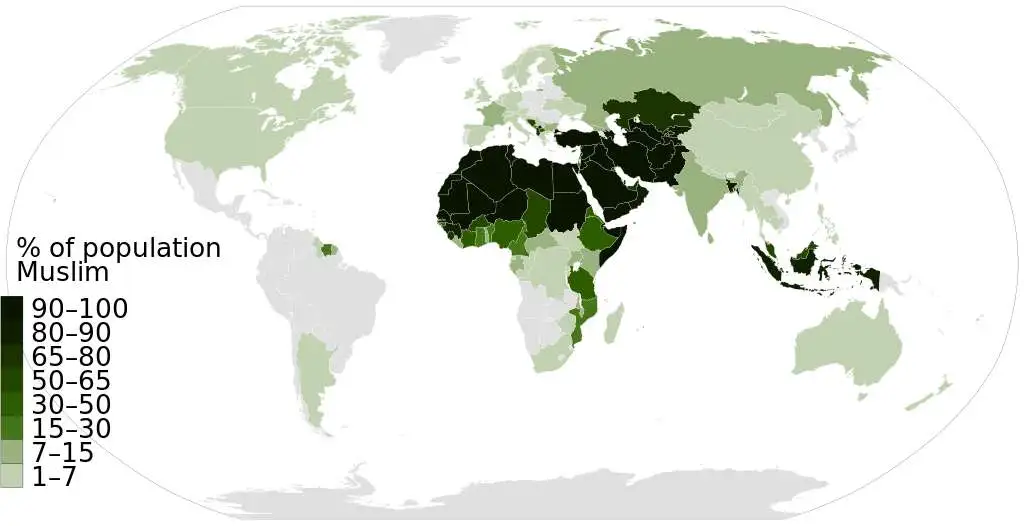
In the midst of an increasingly interconnected world, the halal market has demonstrated notable growth, demonstrating an expansion that transcends borders and cultures. This scenario is largely driven by both the increase in the Islamic population and the growing interest of non-Muslim consumers in products that respect traditions and ethical precepts.
Islamic Demography and Global Expansion
Global Islamic demographics are a driving force for global halal expansion . Population increase and purchasing power in Muslim communities strengthen the demand for products that meet the precepts of Islam, providing an optimistic scenario for the sector. Furthermore, growing awareness about animal welfare and food quality has motivated even non-Muslims to turn to the halal market , in search of healthy and sustainable alternatives.
Brazilian Halal Chicken Market
Brazil, recognized for its efficiency in agribusiness, stands out as one of the giants in the export of halal chicken in Brazil . The alliance between quality cuts and strict adherence to halal standards positions the country as a reliable partner in international trade in this segment. Below, a table illustrates Brazil’s performance in the halal chicken market in relation to export volume and main destinations:
| Year | Export Volume (Tons) | Main Destinations |
|---|---|---|
| 2020 | 1.85 million | Middle East, Asia, Africa |
| 2021 | 2.10 million | Middle East, Asia, European Union |
| 2022 | 2.30 million | Middle East, Asia, Latin America |
Despite global economic fluctuation and logistical challenges, the Brazilian industry maintains its resilience and continues to expand its borders in the halal chicken market , serving an increasingly demanding and informed consumer.
Halal Chicken Production in Brazil
Consolidating itself as a powerhouse in halal chicken production , Brazil stands out not only for the vastness of its territory and favorable climatic conditions, but also for the advanced techniques that its halal slaughterhouses adopt. This segment delves into the specificities of Brazilian halal chicken production , a specialty that crosses borders and conquers international markets with its exceptional quality.
National slaughterhouses responsible for halal production strictly comply with Islamic regulations, which range from food free of prohibited products to slaughter methods that preserve animal welfare and hygiene and food safety practices. In perspective, the export strategy that these companies follow is meticulously planned, aiming not only to meet growing international demand but also to exceed the quality expectations of Muslim and non-Muslim consumers.
- The ability to trace the origin and processing of chicken provides transparency and consumer confidence.
- The commitment to authentic halal certification is a competitive differentiator in the global market.
- The implementation of sustainable technologies follows the ethics of respect for the environment and animal life.
Brazil increasingly establishes its place as a leader in the supply of halal chicken, harmonizing technique and tradition for a result that meets the highest precepts of quality and fidelity to Islamic laws.
Conclusion
Throughout this article, we explore the multiple facets of halal chicken, from its origin and the principles that guide its production to the benefits it brings to consumers, not only in the nutritional aspect, but also spiritually. We also address slaughter methods that respect animal welfare and the seriousness of halal certification, essential for the authenticity and quality of the final product.
Summary of Key Aspects of Halal Chicken
A complete understanding of the procedures and advantages associated with halal chicken highlights the value of this food choice. Halal slaughter practices, strictly followed to meet ethical and quality standards, stand out in contrast to conventional processes, reinforcing the principles of sustainability and respect for life.
The Importance of Informed Consumer Choice
Choosing halal chicken is a reflection of the conscience and responsibility of the informed consumer . The importance of halal certification goes beyond religious conformity, symbolizing a commitment to excellence and integrity in food consumption. Therefore, we encourage everyone to actively search for products that not only nourish the body, but also reflect respect and ethics, values deeply intertwined in the identity of halal chicken.
FAQ
What does it mean for meat to be classified as halal chicken?
The halal classification of chicken indicates that the meat was obtained in accordance with Islamic guidelines, which include specific slaughter procedures, the presence of a Muslim slaughterer, the recitation of a prayer, and animal welfare guidelines.
What are the health benefits of halal chicken?
The health benefits of halal chicken include less toxins and less blood retention in the meat, which can reduce the risk of contamination and promote purer, healthier meat.
How to identify if a chicken is halal certified?
To identify a halal certified chicken , consumers should look for seals or certificates from recognized halal certification bodies on the product packaging, in addition to paying attention to the labeling which must contain information about the certification.
Why is halal certification important?
Halal certification is important because it guarantees that the product meets the standards and practices established by the Islamic religion, providing consumers with confidence in the authenticity and quality of the halal chicken they are purchasing.
What criteria are followed in halal slaughter?
In halal slaughter, criteria such as animal welfare, use of specific slaughter methods, Muslim slaughterhouse, recitation of prayers and strict hygiene are followed, with the aim of respecting Islamic beliefs and guaranteeing the quality of the meat.
Is the halal chicken market growing in Brazil?
Yes, the halal chicken market is expanding in Brazil, with the country positioning itself as one of the main exporters of halal-certified chicken to various markets around the world, especially Muslim-majority countries.
How is halal chicken produced in Brazil?
The production of halal chicken in Brazil follows halal standards, involving animal welfare procedures, specific slaughter techniques and rigorous inspection processes in halal slaughterhouses, aiming to meet both the domestic market and international demand.

